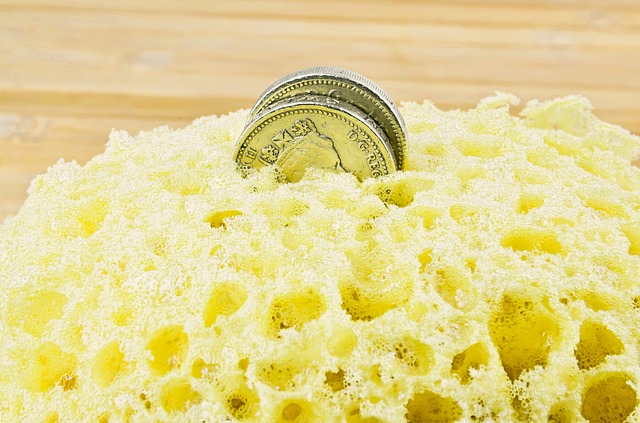Hydrogen peroxide may be used to remove a variety of substances, including organic matter. Listerine mouthwash works by attacking dirt, grease, and debris entrenched in the coin’s fine lines and assisting in its removal from the coin’s surface. Soak in Listerine for 12 hours, rinse with purified water, then air dry.The least intrusive coin cleaning approach is this one. A coin tumbler may be the ideal option for you if you have a lot of coins to clean. To clean their coins, many collectors use pea gravel that has been diluted with water.
Table of Contents
Cleaning coins using other ways
- Alcohol. Isopropyl alcohol should be used to clean the coin. Before keeping a coin, always ensure that it is fully dry.
- Acetone. Put the coin inside a dish with acetone and warm water. In a well-ventilated space, clean the coin.
- Ammonia. To remove any build-up or corrosion, soak the coin in ammonia and gently scrape it with a toothbrush. Allow some few moments to pass before continuing. Make sure it’s thoroughly dry before storing it.
- Apple cider vinegar. Put the coin in an apple juice vinegar solution for 5-10 minutes. Scrub filth and debris away using a soft bristle brush. Rinse the coin in warm water after that. Dry thoroughly.
- Baking soda. Fill a glass halfway with boiling water, 1/4 teaspoon baking soda, and the coin for 7 minutes in the solution. Baking soda removes rust and lifts grime.
- Brasso. To clean the coin, squirt it with Brasso, softly rub it, and lay it aside for 10 minutes. Allow half an hour for Brasso to dry before rubbing with a soft cloth or towel.
- Baking soda with apple cider vinegar Cleaning coins with baking powder is a frequent practise. This is more effective than conventional baking soda and saves time. To remove any leftover residue, scrape both sides of the coin with a toothbrush.
- Foil and baking soda. Fill a container with boiling water and wrap a sheet of aluminium foil over it. Drop the coin into the container after sprinkling baking soda. Avoid wrinkling or folding the foil.
- Coke. Allow around 5 minutes for the coin to marinade in the coke. Remove any loose debris from the coin by rinsing it with cold water. Using a microfiber towel, gently wipe the surface dry. If required, repeat these steps.
- CLR. Mix CLR with warm water in a small dish in a well-ventilated environment. Allow for a 5-minute cooling period. Rub corrosion, filth, and rust build-up away using a toothbrush.
- Ketchup. Using a toothbrush, carefully clean each side of the coin with a tiny quantity of ketchup. Wait 10 minutes before rinsing and drying the coin with warm water. The ketchup will help to eliminate oxidation and grime accumulation.
- Olive oil. Overnight, immerse the coin in olive oil. Scrub lightly with a toothbrush in the morning using dish soap. The coin will shine like new after buffing with a dry cloth.
- Toothpaste. It works well. Apply toothpaste on the coin using a Q-tip. Allow 5 minutes to pass before rubbing it away. Warm water should be used to rinse. If necessary, scrub while rinsing and repeat procedures.
- Vinegar. Pour apple cider or white distilled vinegar over a pile of coins in a dish. To dislodge dirt, shake the dish from time to time. Allow coins to soak overnight before rinsing, drying, and repeating the process for even greater results.
SHOULD I CLEAN MY COINS
Only if you don’t intend to sell the coins and they have emotional worth for you. In general, it is preferable to leave your old metal coinage alone rather than attempting to remove all of the filth and grit. Rare coins are devalued when cleaned or polished. Get an evaluation before cleaning your coins if you want to sell them. There are, however, suitable methods to clean silver or gold coins if you think they have emotional worth rather than monetary value. Scrubbing those coins may brighten them up and make them more appealing.
Is rubbing alcohol safe to use on coins?
Soaking Coins is a term used to describe the process of soaking coins in Make a salt-and-isopropyl-alcohol soak for your coins. These abrasive and acidic chemicals will remove any grime from your coin.
If you have silver coins, do you think you should clean them?
It is forbidden to polish copper, silver, nickel, or gold coins. However, if you really want to get your hands dirty and clean some coins, we suggest starting with current loose change. Allow around 5 minutes for the coin to soak before inspecting it.
Is it easy to clean coins to use an ultrasonic cleaner?
If the coins are valuable collectibles, they should never be cleaned. To clean coins, use ultrasonic cleaners with a low frequency and power, and only use them for a few minutes. Cleaning your coins for an extended period of time using high-frequency, high-power ultrasonic cleaners may cause harm.
Do silver coins be harmed by baking soda?
Cover the silver completely with baking soda. Fill the container halfway with boiling water to thoroughly submerge the silver. Add additional baking soda on top of the silver after the water has been put in.
What is causing the blackening of my silver coin?
Because of hydrogen sulphide, a naturally occurring chemical, silver becomes black. A chemical reaction occurs when silver comes into touch with it, resulting in the formation of a black coating. Silver jewellery that has oxidized indicates that it is genuine silver. The oxidation of other metals differs. Over time, toning happens on its own. It is caused by air and/or Sulphur interacting with the metal of the coin. Toning may also be unsightly, appearing in dark brown and black tones.


